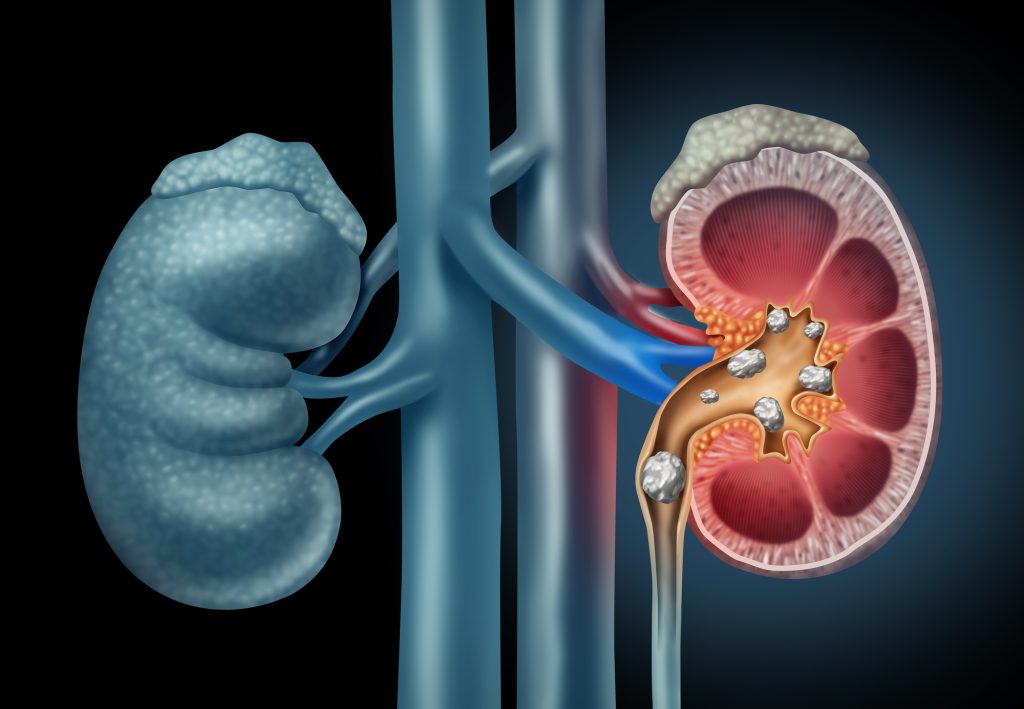

Kidney stones are painful and somewhat common. Statistics point to the fact that more than 30 million Americans have suffered from urolithiasis, or stone disease, at some time in their lives. If waiting for a stone to pass fails, we can treat kidney stones by using shock wave lithotripsy, ureteroscopy, percutaneous nephrolithotomy or open surgery. In any case, we have a variety of tools with which to help male and female patients with kidney stones.
Kidney stones occur when the urine becomes excessively concentrated with a substance which then crystallizes out of the urine onto the wall of the kidney instead of staying dissolved in the urine. It may pass into the ureter, the thin tube which passes the urine from the kidney into the bladder, as a very small crystal. This crystal greatly irritates the inner wall of the ureter causing severe symptoms. It may also block the ureter stopping the flow of urine and cause the kidney to back up with urine and painfully enlarge.
Symptoms of kidney or ureter stones include:
Causes and risk factors for stone formation include:
To diagnose, your AUCNY urologist will use some of the following:
Treatment for small kidney stones may consist of the following:
For larger kidney stones that will not pass on their own, other treatments that may be offered by your AUCNY doctor are: